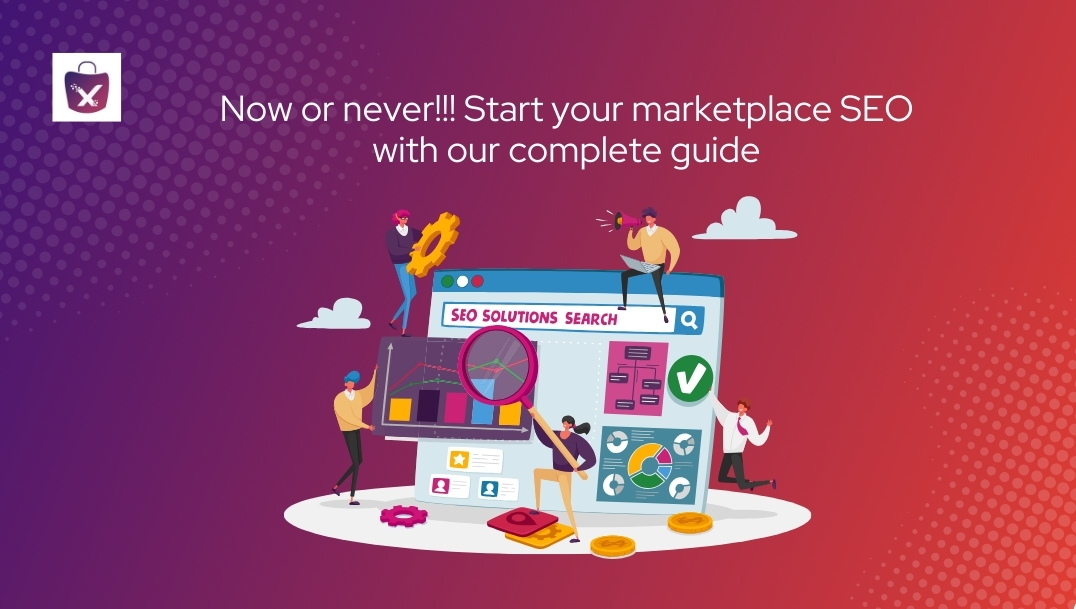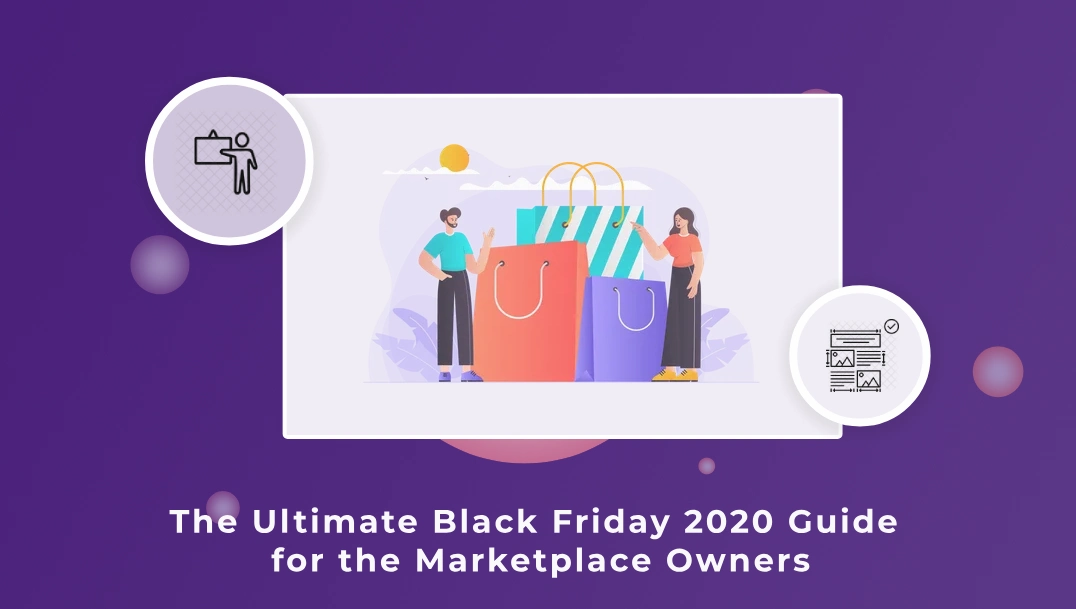In our last blog, we showed you how to spy on competitors to find better SEO opportunities for your marketplace. Have you done that? Great. If not, we urge you to go through the process. It will give you valuable insights for the next task of the hour- optimizing your own marketplace.
1. Check Your Website Speed:
Site Speed is an official ranking factor of Google. The search engine giant has defined the site speed as the metric to evaluate how quickly a website responds to web request/ search queries by the users.
This is what Google have to say about the site speed–
Not just for the bots but the loading speed is also an important factor for user experience. As per statistics, 40% of people abandon a website that takes more than 3 seconds to load. When it comes to the e-commerce a slow website is sinister and trigger the loss.
The study shows, if an e-commerce site is making $100,000 per day, a 1-second page delay could potentially cost merchants $2.5 million in lost sales every year. Whereas a 0.1-second improvement in site speed led to significant increases in conversion rates and user engagement
Are you one of them? Analyze your website speed now- https://developers.google.com/speed/pagespeed/insights/
2. Is your marketplace mobile-friendly?
In 2015, Google announced “Make sure your site’s ready for mobile-friendly Google search results” and underlined mobile-friendliness as their another ranking factor.
Why Google take this stand? Because they want to capture the huge market of mobile phone users. How big is this market? Look at the below chart-
This trend has continued to grow significantly since then. As for the current state in 2024, mobile usage remains a dominant force in internet traffic. The exact figures can vary, but it’s widely recognized that a substantial majority of internet users access content primarily through mobile devices such as smartphones and tablets. This ongoing trend underscores the importance for websites to be optimized for mobile to ensure they rank well in Google search results and provide a good user experience
Today, if your marketplace is not mobile optimized, there are high chances to get a poor ranking from Google. Your poor ranking opens up the ground for your competitors. 61% of users are unlikely to return to a mobile site they had trouble accessing and 40% visit a competitor’s site instead.”
Curious to know whether your marketplace is mobile friendly or not? Test now- https://developers.google.com/webmasters/mobile-sites/
3. Website Content
SEO has evolved. Reckless keyword stuffing and links from low-quality websites will do little help to your marketplace. Fresh, user-friendly content now plays the key role.
With every new algorithm update, Google is trying to update its search engine to deliver more relevant content. Today’s e-commerce business success banks on the targeted content that aligns with the customer journey to deliver them a successful and memorable digital shopping experience.
And trust us, without the content-driven SEO strategy, it’s pretty hard to outrank a competitor like Amazon who has excellent SEO score-
Content optimization with specific and relevant keywords to match with the targeted customer queries along with other best SEO practices will help you to rank and open up the sales funnel. Let’s start the process-
1. Identification of keywords:
Your marketplace must be optimized for the search queries/ keywords which are related to your business. Forums like Quora is a good start to unearth the terms which people usually use-
We ask a question on shoe at there-
From the red box area, we are getting words that people often use or make queries regarding shoes- “Casual Shoes”, “Formal Shoes”. More you dig at there, better you will have an understanding on used search queries.
What next? Let’s go to the Google for more keyword suggestions.
There are two ways to utilize it-
First, Google Suggestion- Google has come up with multiple search suggestions for the keyword “shoes for men.” These suggestions are based on popular search queries that users frequently enter, such as “best running shoes for men,” “men’s dress shoes,” “casual shoes for men,” “affordable men’s shoes,” and “men’s leather shoes.” These suggestions help users find exactly what they’re looking for and also provide valuable insights for businesses looking to optimize their content for search engines.
Second, Google Related Search- Google Search Console is an essential tool for SEO, providing valuable insights into website performance. It allows you to monitor key metrics like clicks, impressions, and average position in search results. By identifying which keywords drive traffic and highlighting any issues with site indexing, it helps you optimize content and improve visibility. Additionally, Search Console offers reports on mobile usability, security issues, and website speed, enabling you to enhance the overall user experience and search engine rankings.
2. Evaluating the keywords:
After mining the bunch of keywords your next step will be to evaluate them through Google Keywords Planner. Just what we did for your reference with the same keyword- “shoe for men”.
The tool from Google will help one to understand the keyword importance by their average monthly searches. It will also generate a bunch of keyword ideas.
Now, sit with your SEO expert and pick the best one for your marketplace.
1. Optimize Content with keywords
In our previous blog, we suggest you to spy on competitors’ content to unveil what keywords they are targeting. Reverse the task and now you have to optimize your own marketplace website.
We presume you have successfully selected keywords which are best for your business. It would be better if you can use them in your-
- Home Page
- Category Page
- Product Page
- Landing Page
- Product Description
While optimizing with the keywords try to keep the content flow authentic. Stuffing is a big “NO” from search engine giant Google.
Below we will guide you through some of the best industry examples to take cue from the bigger players-
2. Home Page
You can take inspiration from Etsy-
Etsy’s choice of keywords “Handmade”, “Vintage” & “Unique Goods” correlates with their business. Look at their meta description and title– both are informative and user-friendly. Just what Google bots look for
3. Category Page
Category pages are the mid-level pages that make it easy for customers and search engines to navigate your website.
The Online Marketplace category page opens up the sales funnel for the buyers. Searchers often search with broad queries (men’s shoes, iPod, smartphones etc). With right optimization, one can easily match with the users’ intent. EBay knows how to play this game. Have a look-
Wrapping the keywords with the content is the real hack. Here is the category page (Men Shoes) description from Schuch and the page is smartly optimized with the keywords that they want to target-
“Men’s shoes”, “Trainers”, “Boots”, “Shoes & Sandals” and long tail keyword – “Discover men’s shoes” – they have ticked every keyword optimization box.
Category page description is equally important for the users as it will provide detailed information to them. More engaging the descriptions are, the better your conversion.
Use of click baits “Huge Selection”, “Next Day Delivery” hikes the chance of clicks and conversion. Just what Schuch has done with their meta description.
4. Product Page
When search goes specific (e.g Men’s Formal Shoes, Apple iPhone 64 GB, Women Bridal gown) and SEO optimized product pages start to get search engine’s notice. Look around all the big brands and you will find they have optimized their product pages with specific informative content.
Take Amazon’s product page for example-
Have you noticed how vivid the description is? They have covered the brand name, the product description as well as subtle details like “lace up”. A customer can search by the brand name or go with straightforward product detail. Covering all aspects will ensure a better ranking.
5. Site Structure:
Keywords alone will not help your marketplace to rank better. Site structure is another crucial ranking factor. Why so? Let us explain-
Your web pages optimized with the keyword will help search bots to find your websites against related search queries. High Five!!! But those search bots would like to crawl, look around, sorts and analyze your website to process more information. A clean, easy-to-navigate site structure makes the process easy.
But, hey we are talking about marketplace!!!
Problem emerges right at there. The marketplace has a large number of categories and products and their dedicated web pages. How can one ensure the Google bots have a user-friendly link structure?
Some tips from our SEO experts–
An ideal site structure for a marketplace should include:
- Seamless Buyer’s Journey:
- Ensure users can complete their journey with minimal clicks.
- Logical Flow:
- Maintain a logical flow throughout all links for easy navigation.
- Clear Organization:
- Structure the website with clear divisions of categories, sub-categories, and products.
- Keyword Placement:
- Place keywords in important locations to help search bots navigate the pages.
- Category and product pages are ideal for keyword placement.
Given examples is just a reference.
Every marketplace should develop their own site structure based on their products, categories and their target audience’s search behavior.
Backlinks:
In their initial days, Google has one major algorithm called PageRank to rank the websites for related search queries. Though the search engine giant has now new bagful of algorithms but PageRank is still one of the major ranking factors.
Named after Google co-founder Lary Page, this algorithm evaluates the quality of the links that the website has got from external websites. The more high-quality websites that link to you, the better rankings are.
That’s all for today. Do remember, there are tons of factors which are considered as the hefty ranking factors. As Google and other search engines never disclose the factors with a big shout out, the confusion brews. But, what we have offered are result-driven and best for your marketplace SEO.
Results of doing strategic SEO comes with time. It’s a scientific method and not a one word spell for overnight magic. The process is continuous and results are worthy of your investment. Once you keep faith in the step-by-step guide that we have shown you here, will give you better ranking for sure.
Have you ever tried to optimize your marketplace for search engines? What was the result? What gave you more trouble and where did you collect the shining SEO medals? Share your experience with us.






